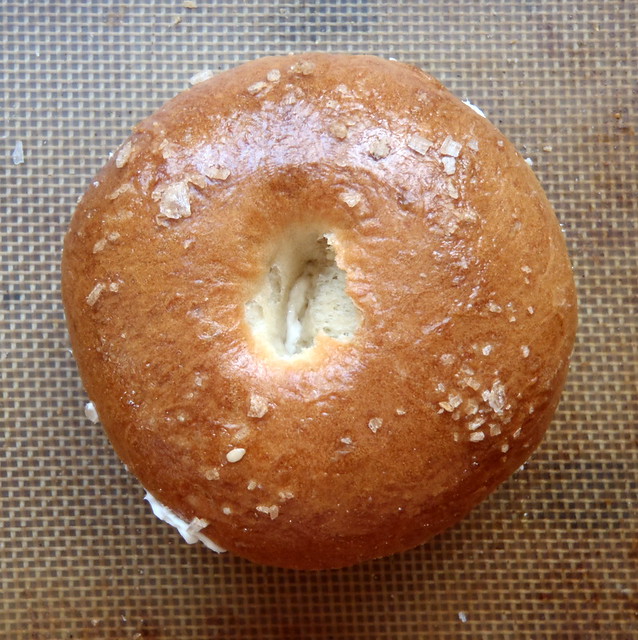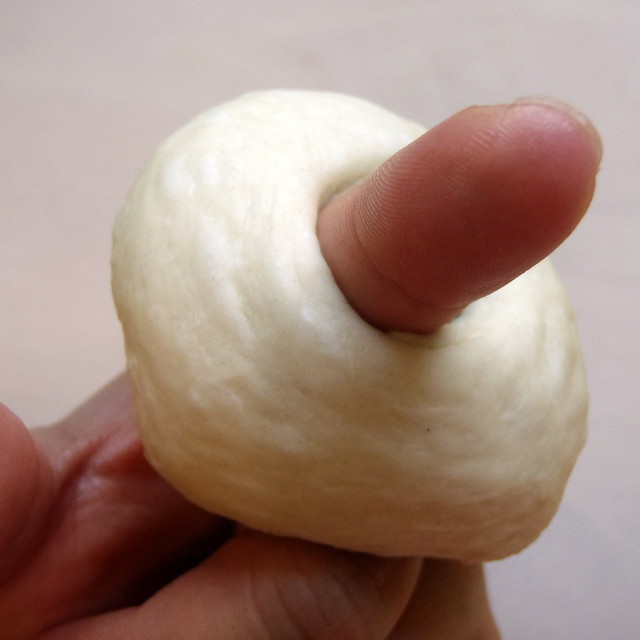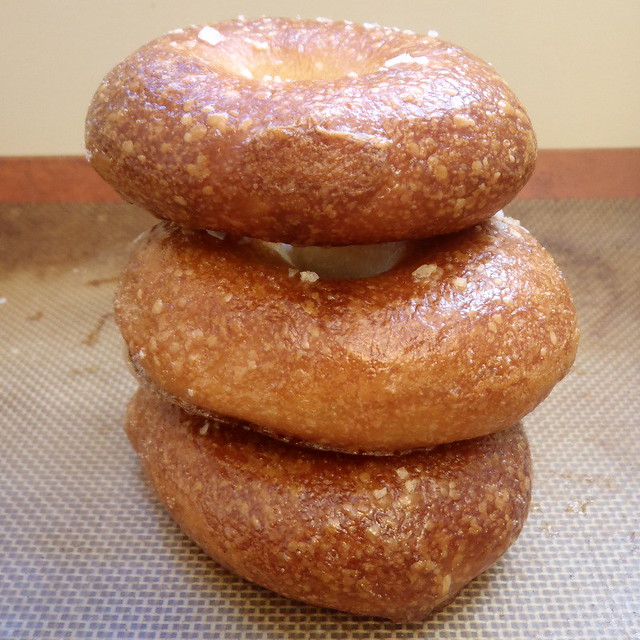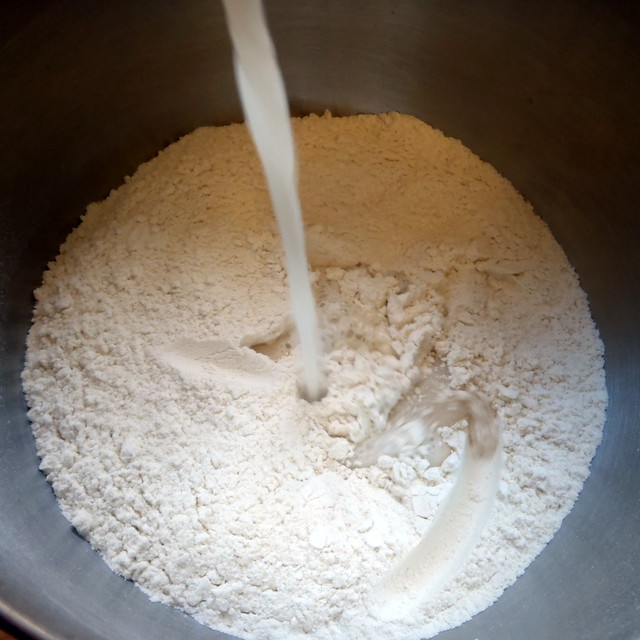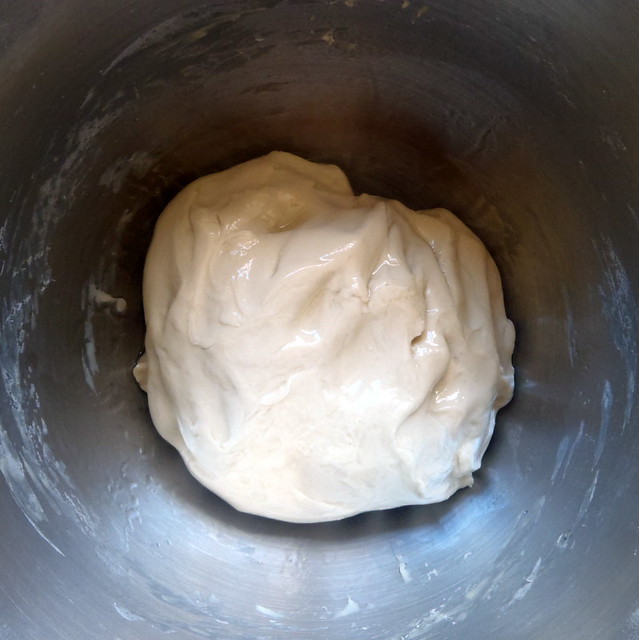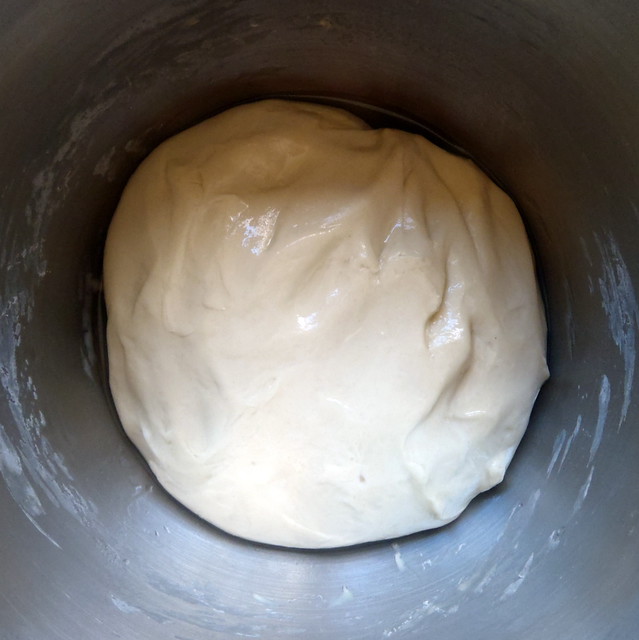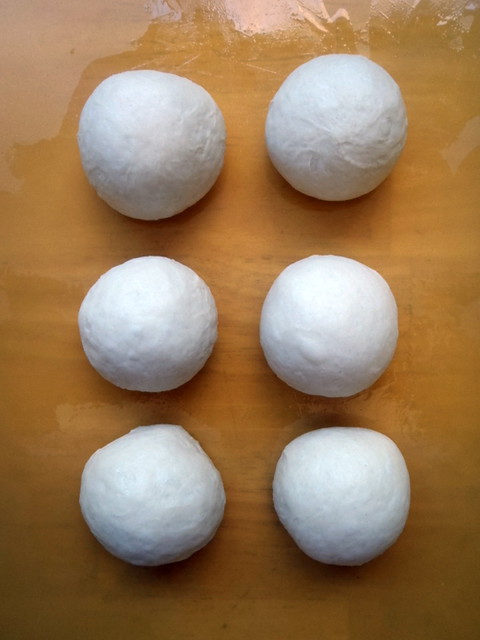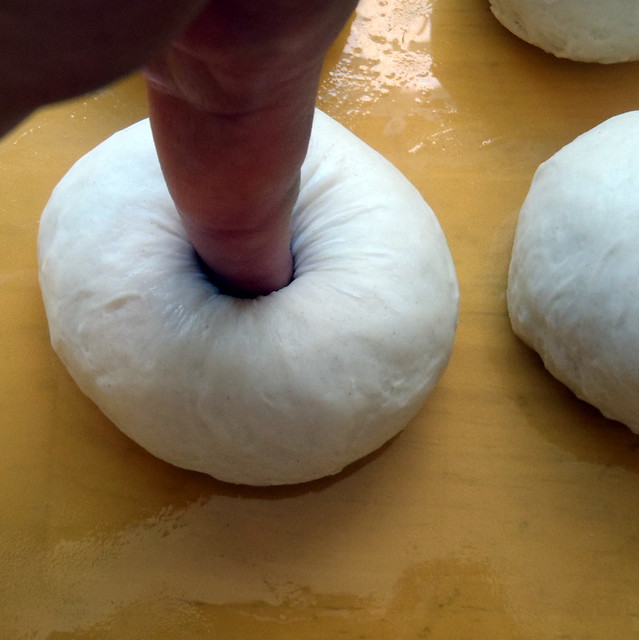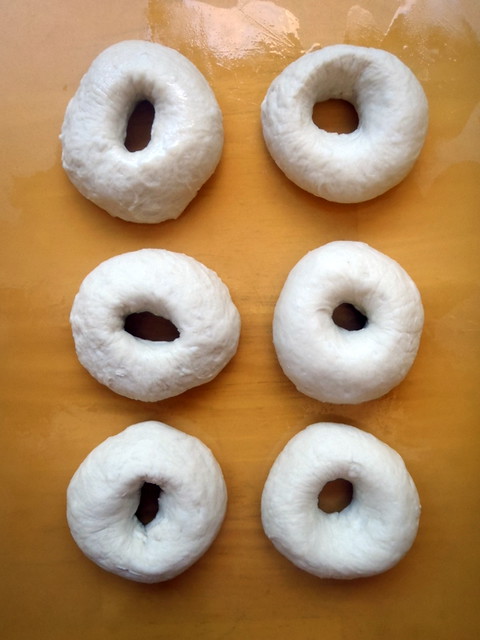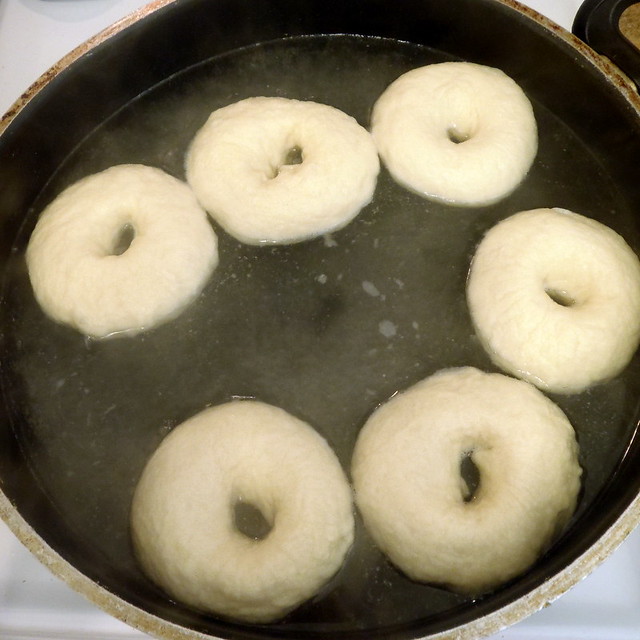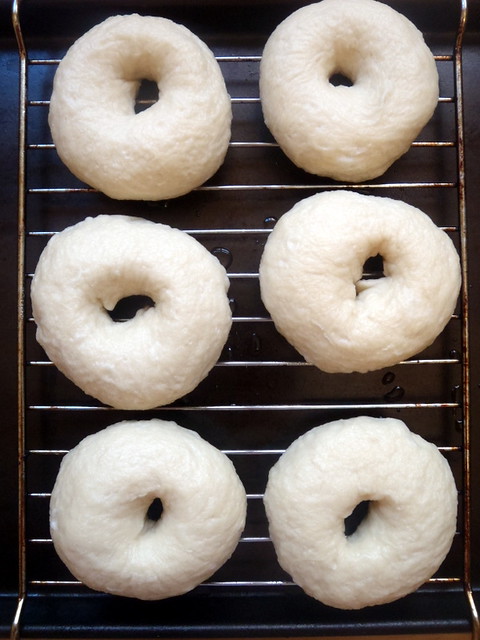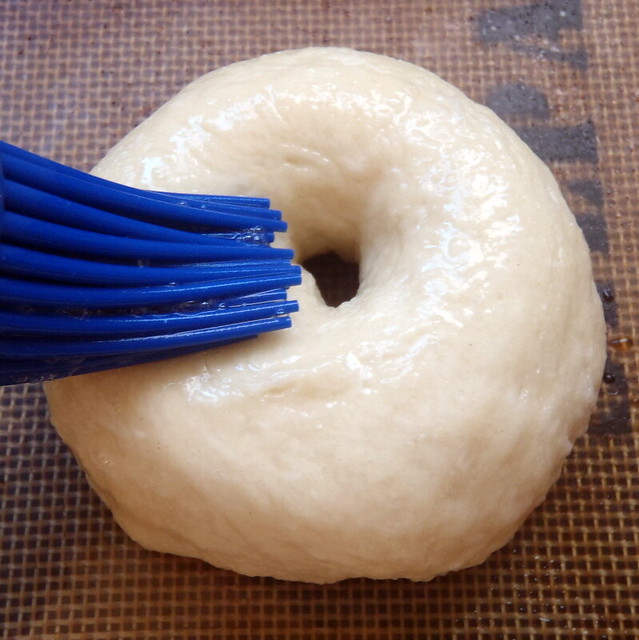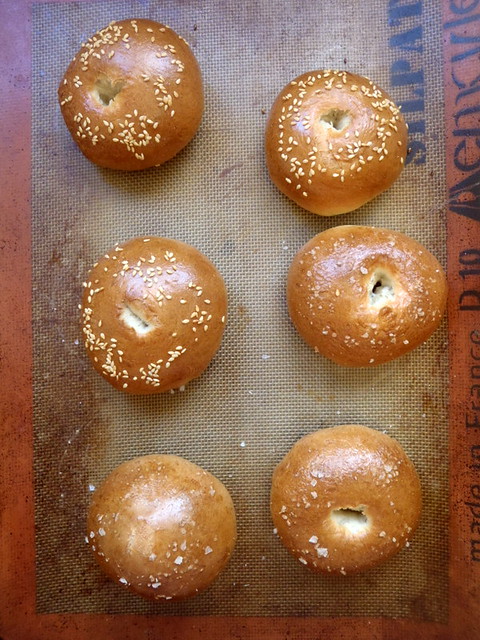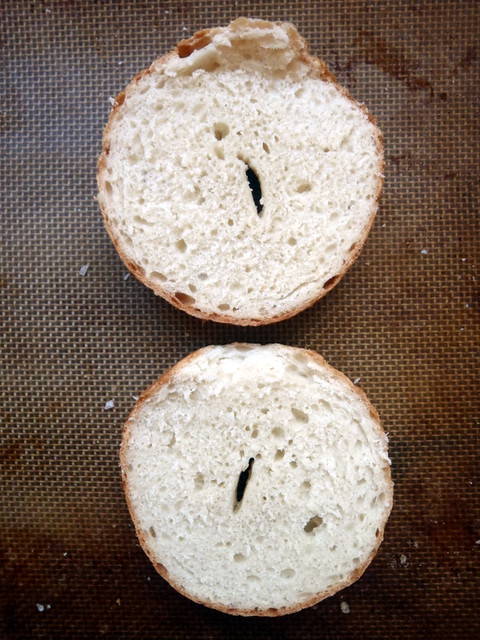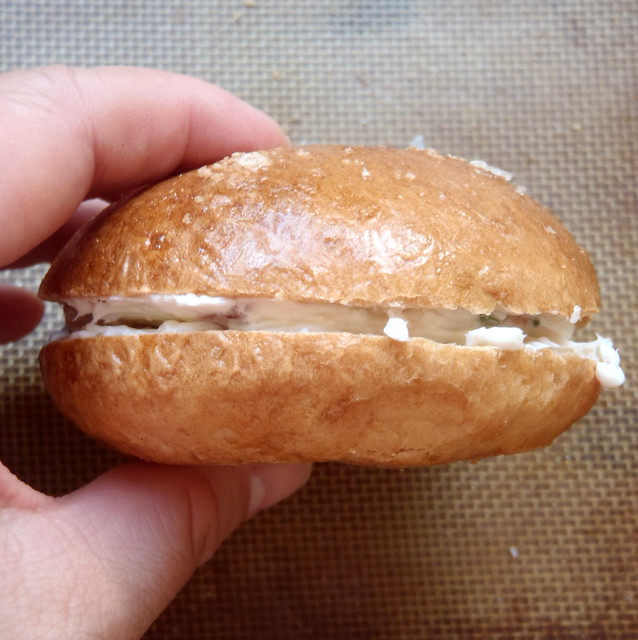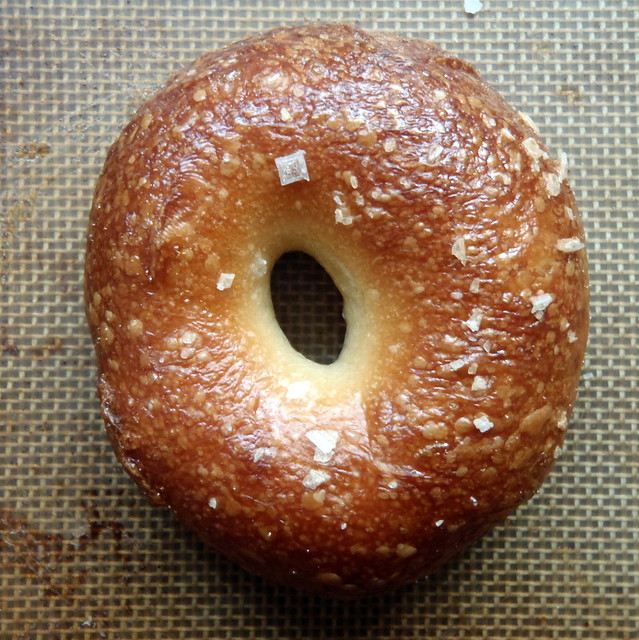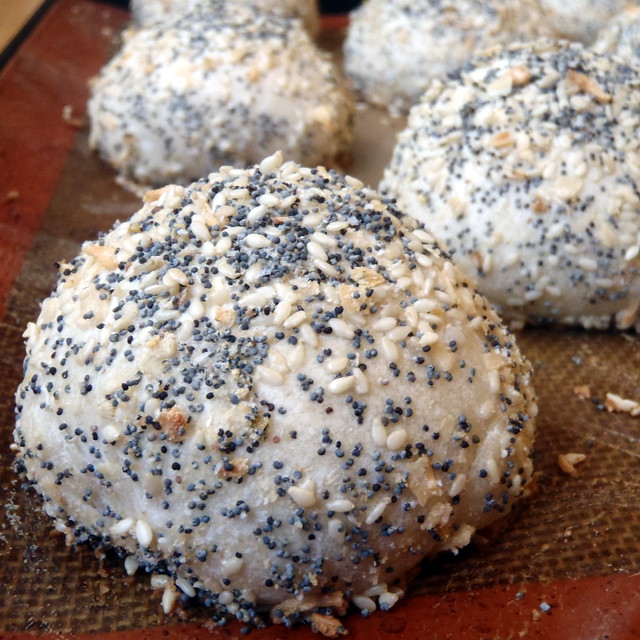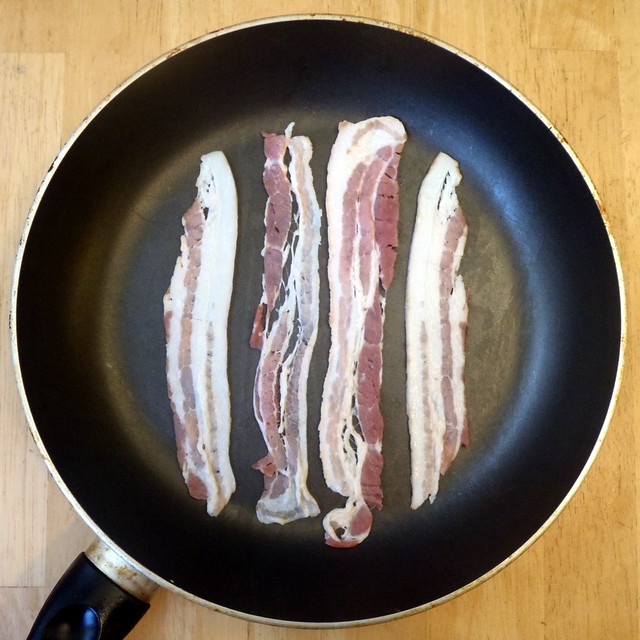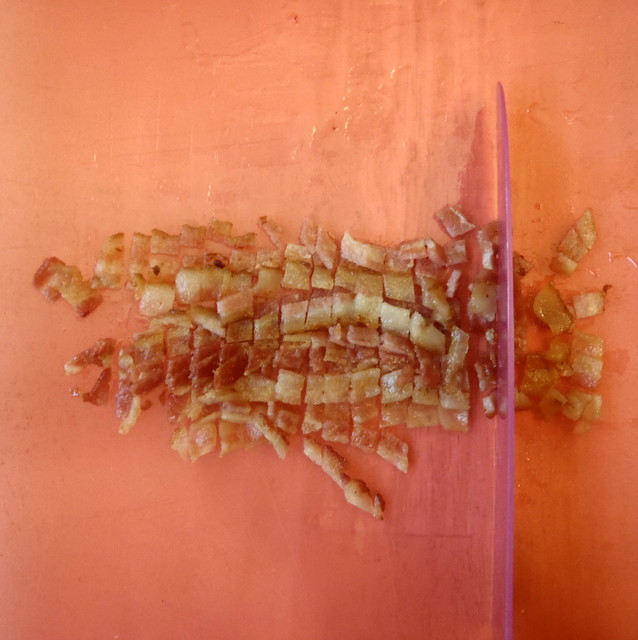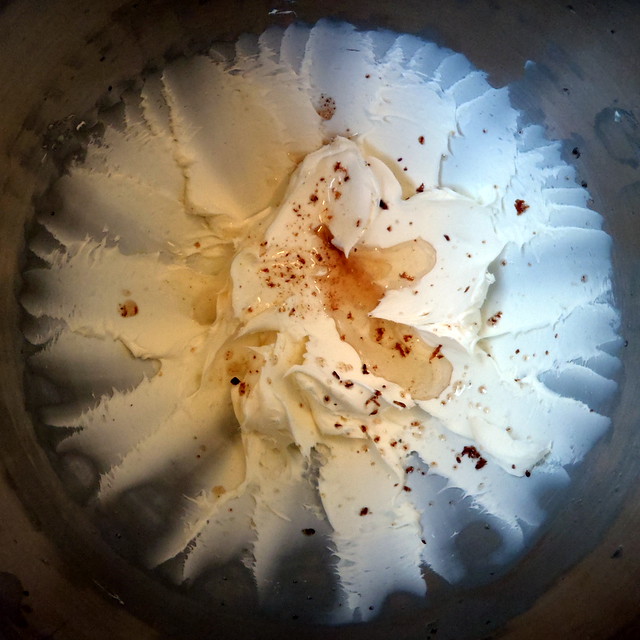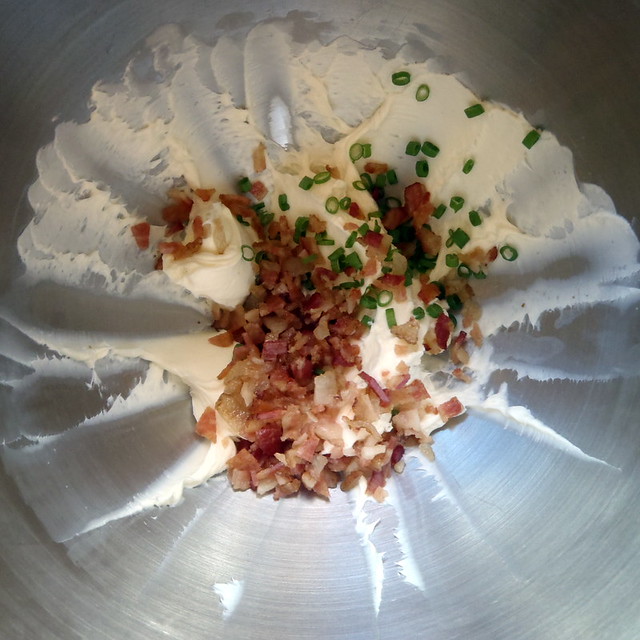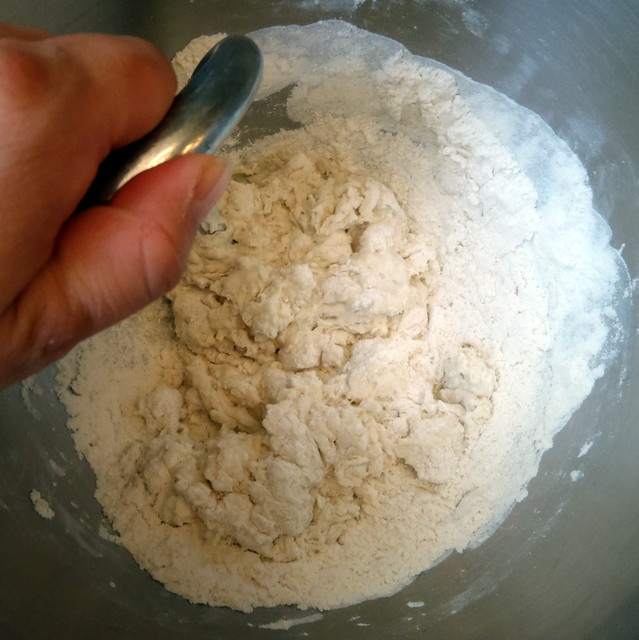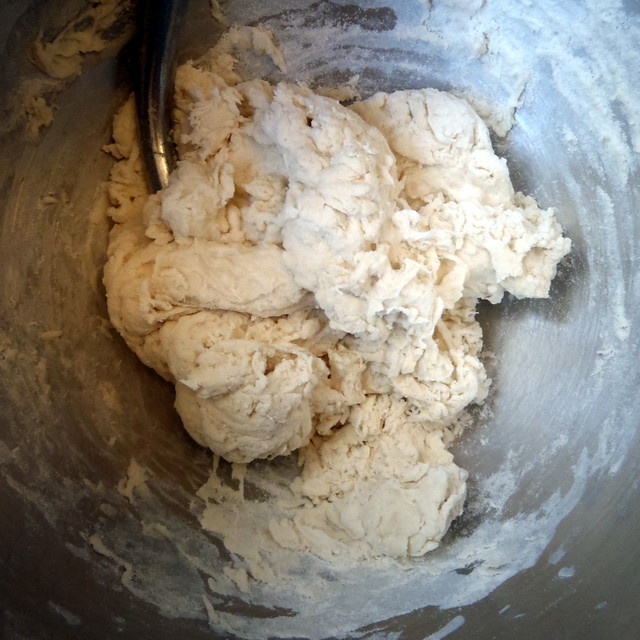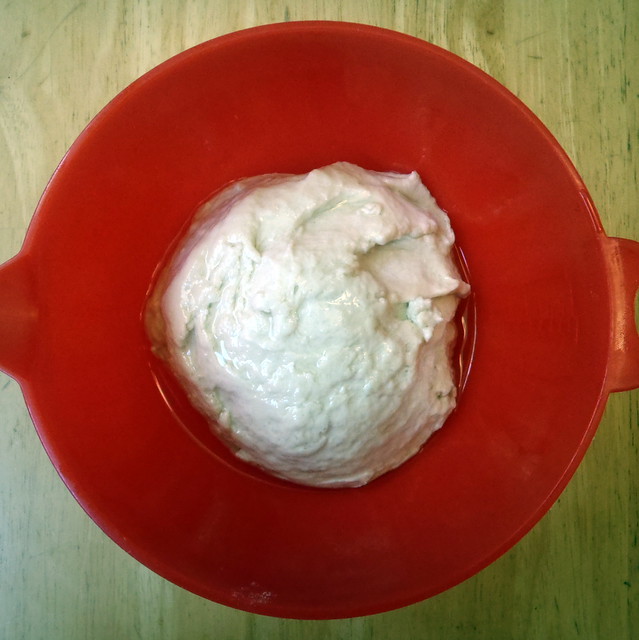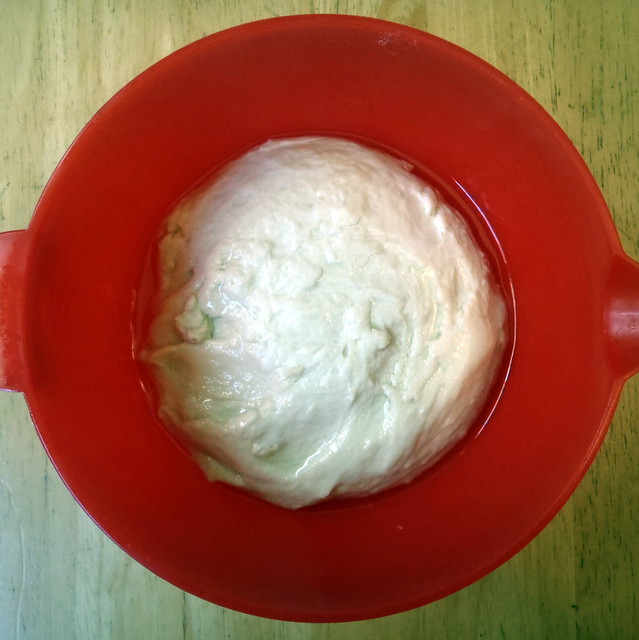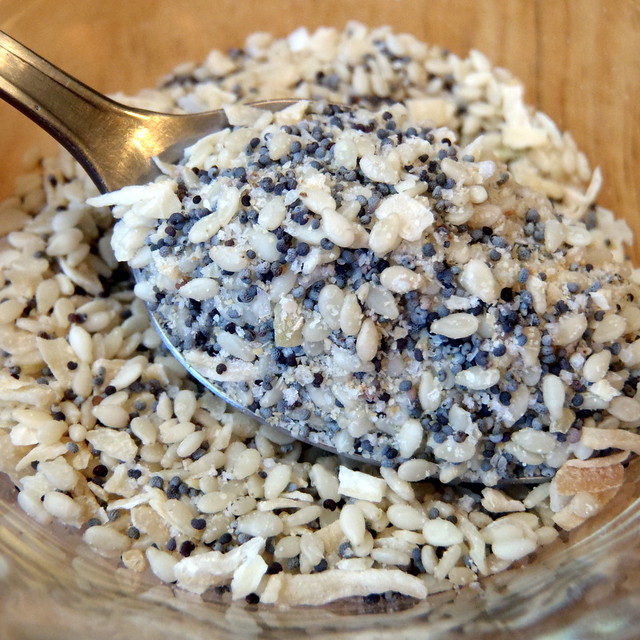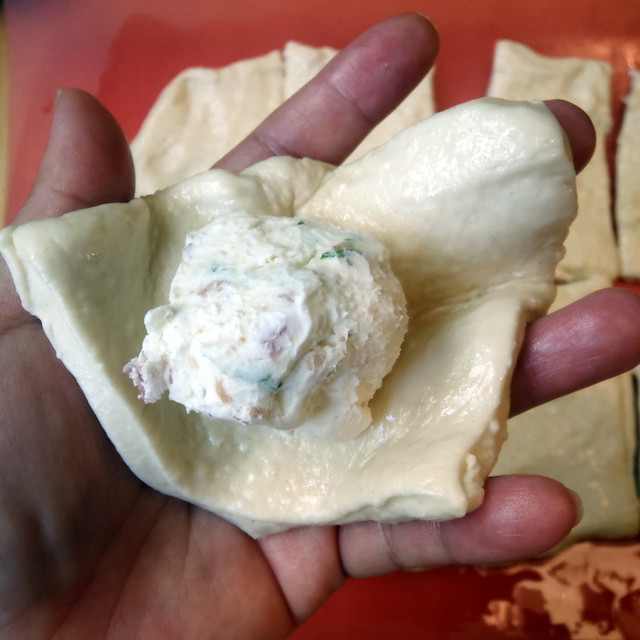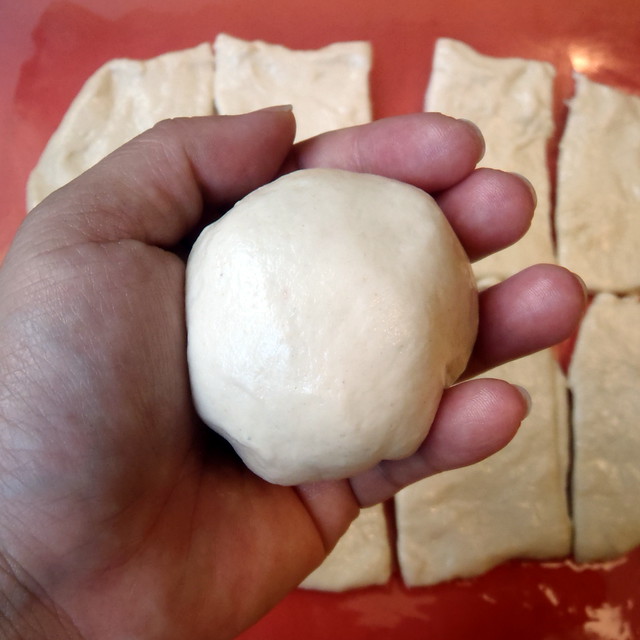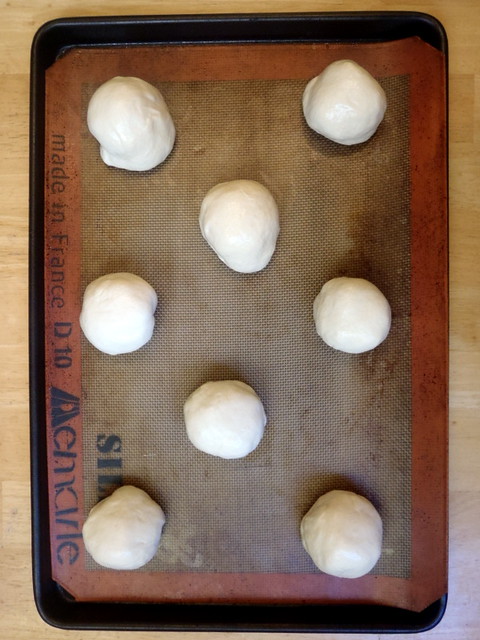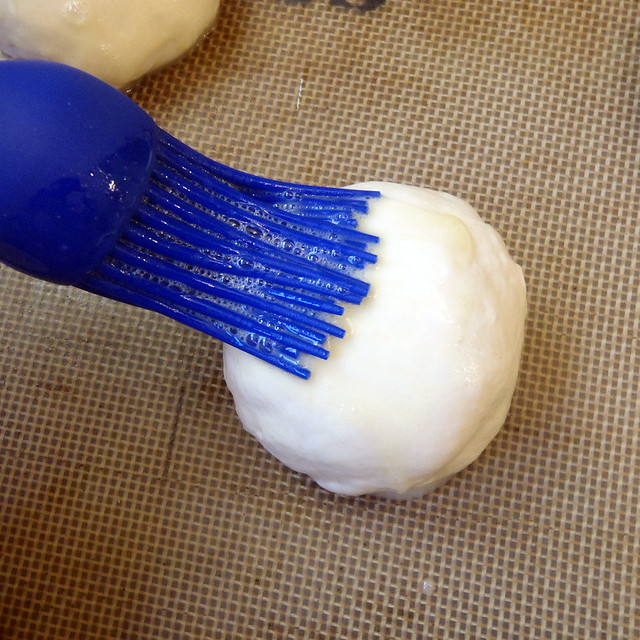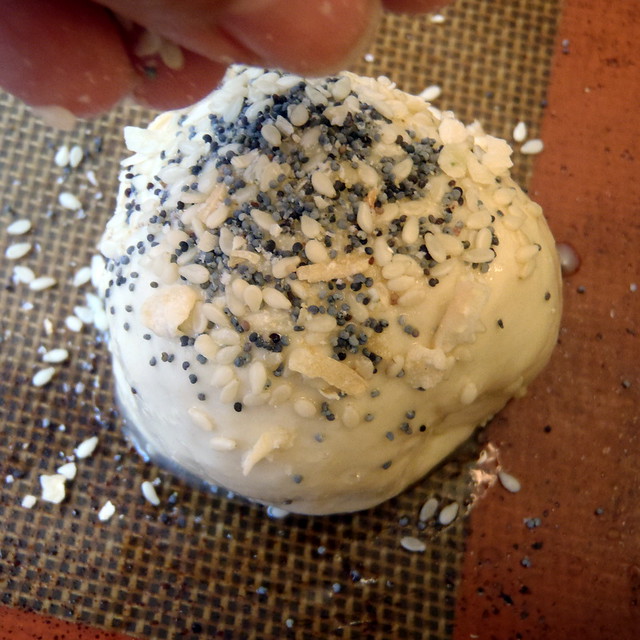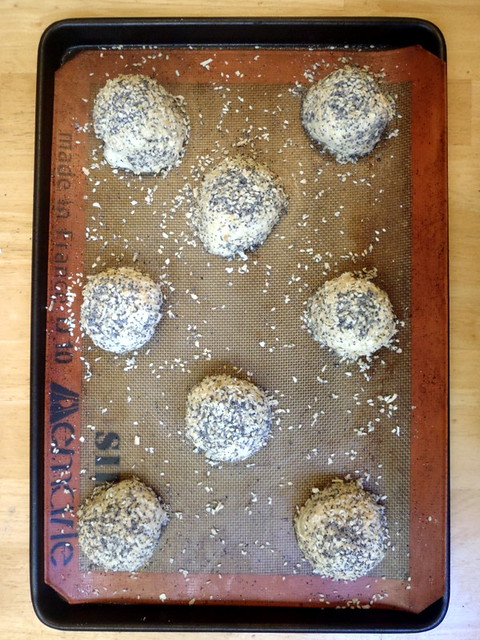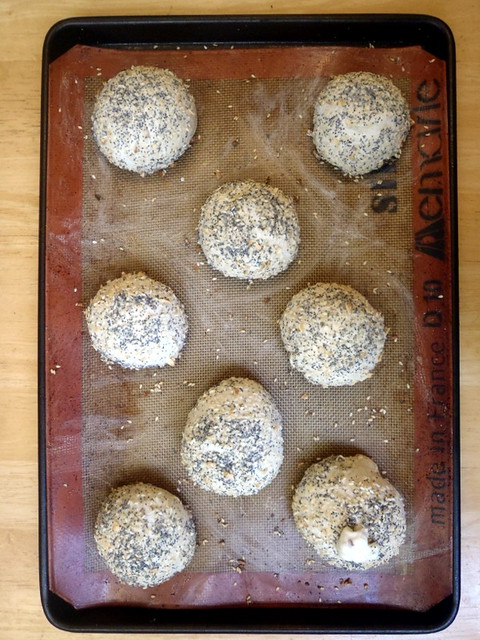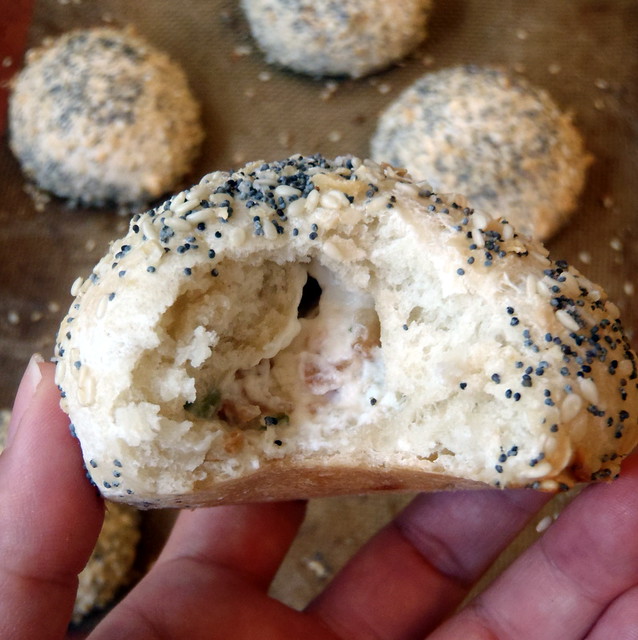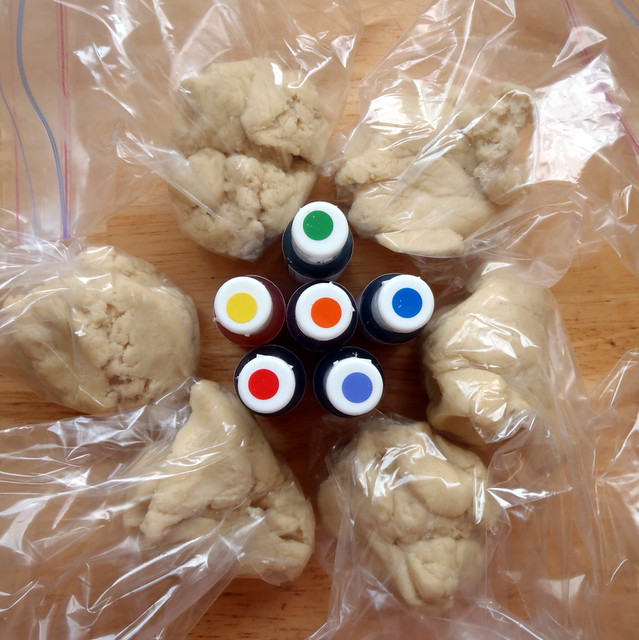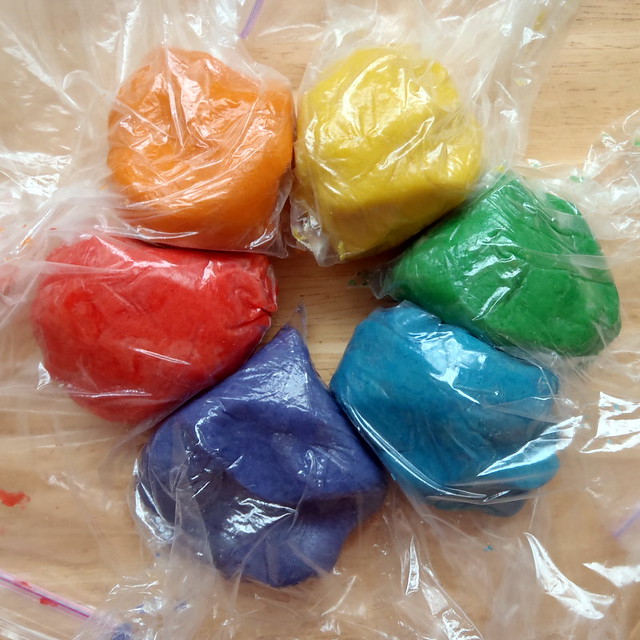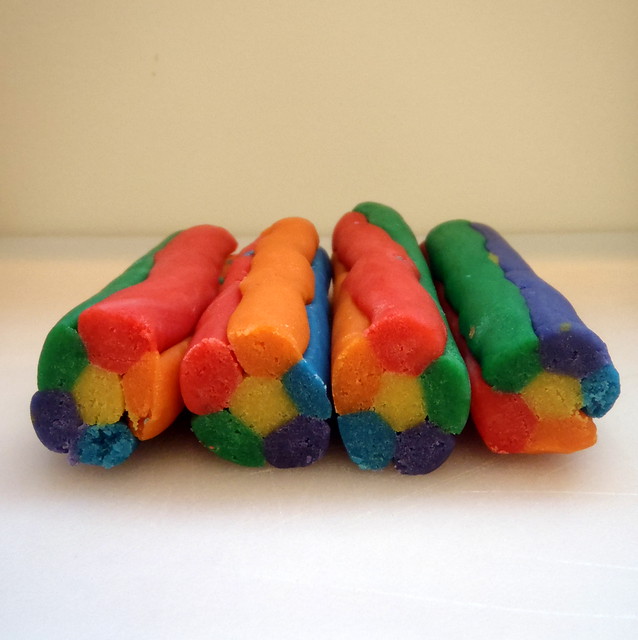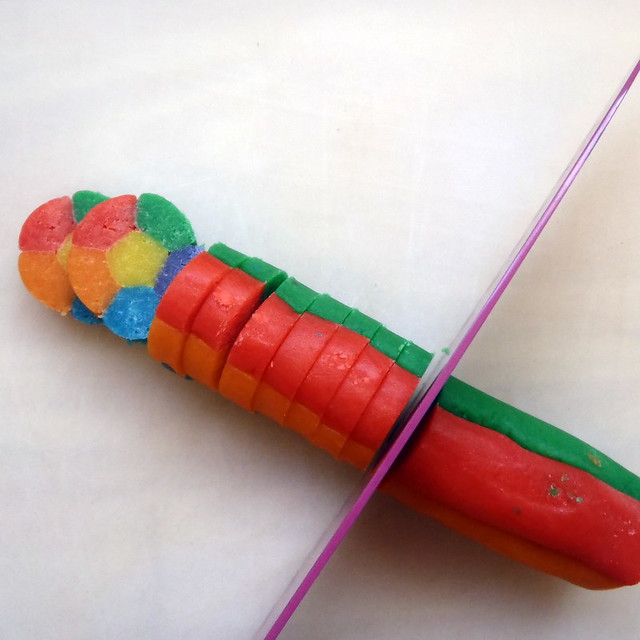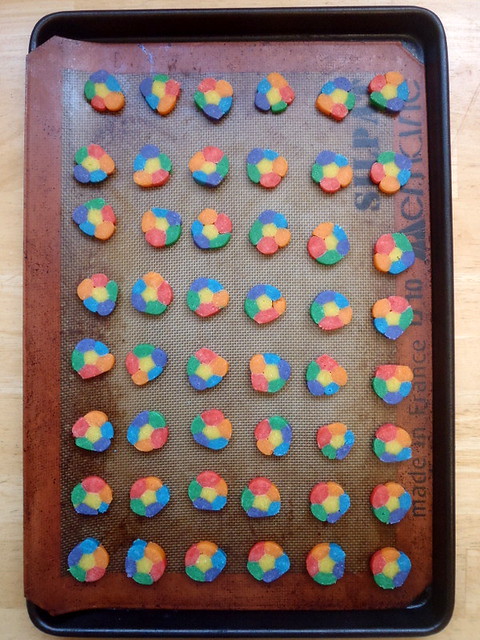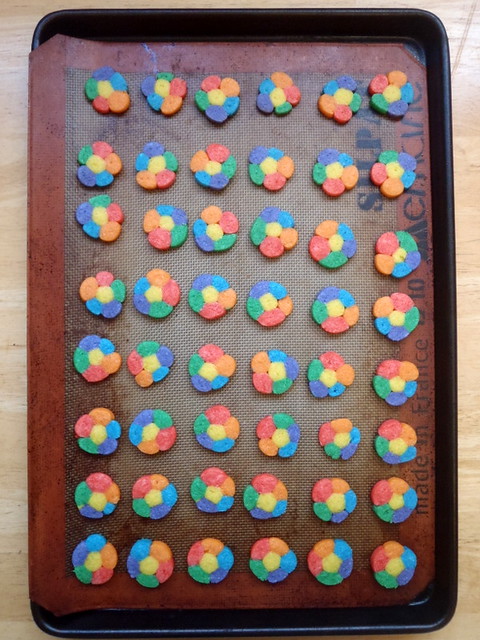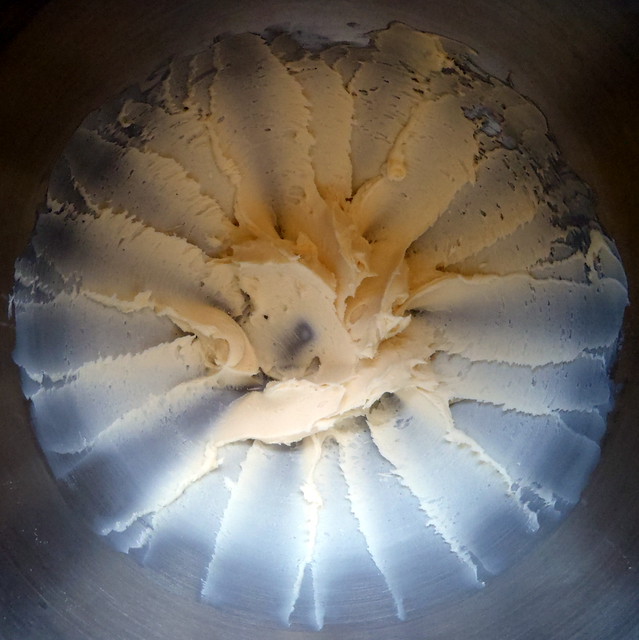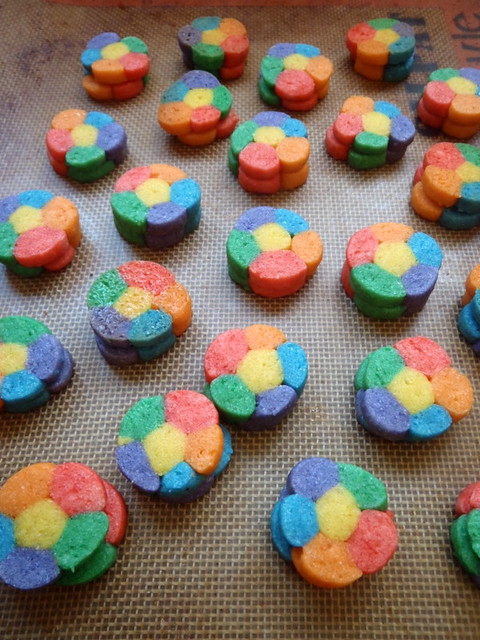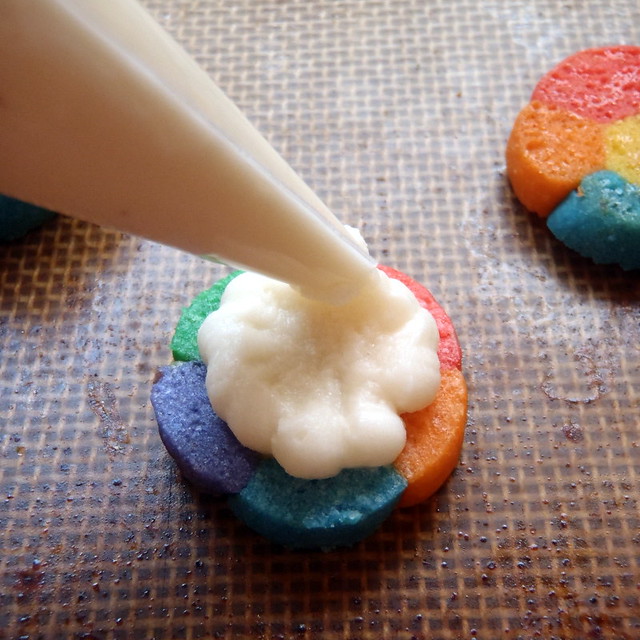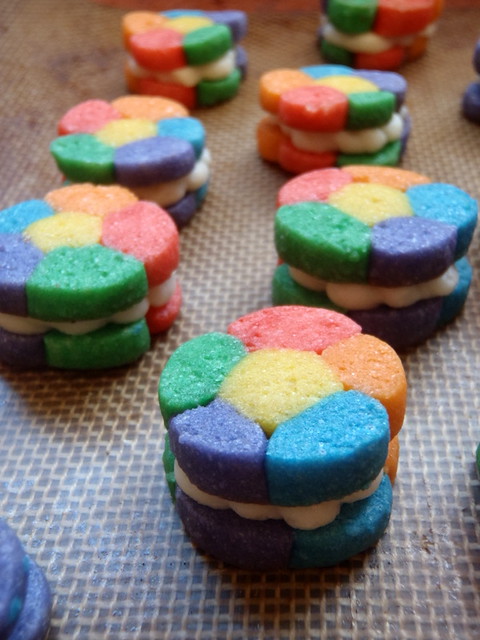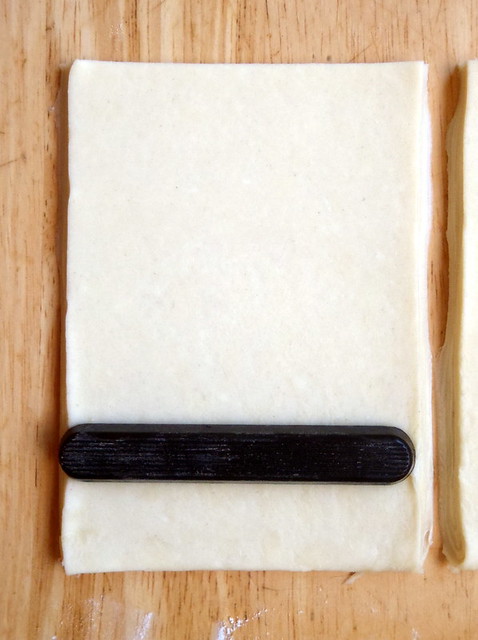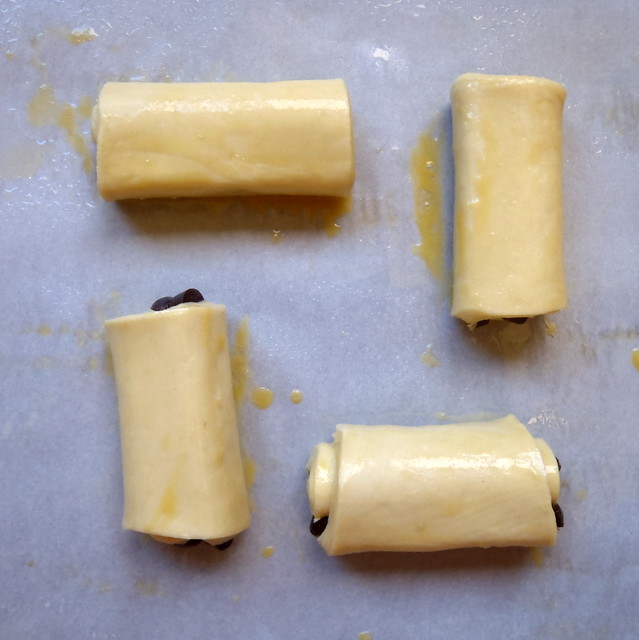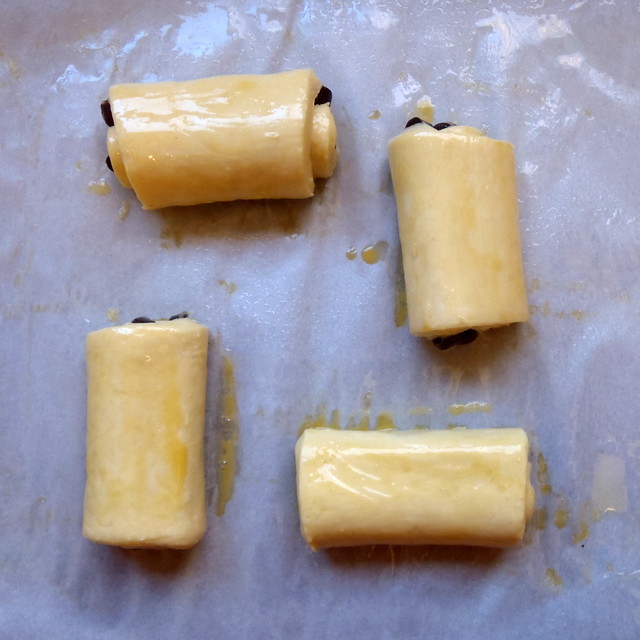So remember that time I decided to make croissants from scratch using what was probably the most complicated recipe ever? And remember how it took almost three days to make? Well this is pretty much the exact opposite of that.
One morning I was craving a bagel with cream cheese, but it was too cold, and I was too lazy to go out to the store to buy some. So I decided to look up some bagel recipes to see how easy it would be to make them at home. Really easy, it turns out. (Yes, you read that right: I was too lazy to go to the store but not lazy enough to make my own bagels. Go figure.) In fact, you can almost whip these up in about 2 hours if you really wanted. I'd suggest letting them rise slowly (overnight) in the refrigerator, though, for better flavor and texture (see note at the bottom of this post).
I used this recipe from CHOW as a template and altered it based on some of the comments on the post and by the ingredients I had on hand. First, I noticed a lot of the comments mentioning that 2 tablespoons of salt was way too much, so I used 2 teaspoons instead. I also added some baking soda to the boiling water because someone mentioned it would give it a more authentic NYC taste, whatever that means. And because I only had diastatic malt powder, I substituted the malt syrup with 1 teaspoon of the malt powder.
I also decided to shape the bagels using the "finger hula hooping" method rather than the "snake biting its tail" method. Yeah, I just made the name of those two methods up, but I'm sure you can see where I'm going with them. The finger hula hooping method is just too fun not to do!
Homemade Bagels (adapted from CHOW)
makes 12 bagels
1 1/2 cups tepid water (105-110°F), plus 1 tablespoon for the egg wash
1 packet active dry yeast
4 cups bread flour
1 teaspoon diastatic malt powder
2 teaspoons kosher salt
4 teaspoons sugar
Vegetable Oil
1 teaspoon baking soda
1 large egg white
Sesame seeds, poppy seeds, or coarse salt for topping
Place the tepid water in a small bowl and dissolve the yeast completely; set aside. Combine flour, malt powder, salt, and sugar in the bowl of a stand mixer fitted with a dough hook attachment. Add yeast mixture, scraping any undissolved yeast out of the bowl with a spatula.
Mix on low until most of the loose flour has been worked into the dough and the dough looks shredded, about 2 minutes. Increase the speed to medium low and continue mixing until the dough is stiff, smooth, and elastic, about 8 to 9 minutes more. (If the dough gets stuck on the hook or splits into 2 pieces, stop the machine, scrape off the hook, and mash the dough back into the bottom of the bowl.) The dough should be dry, not tacky or sticky, and somewhat stiff.
Shape the dough into a ball, pour a glug of oil over it, and turn it to coat in oil. Cover the bowl with a damp towel and let the dough rise in a warm place, until it is noticeably puffy and springs back when you poke it, about 20 minutes. (The dough will not double in size.)
Meanwhile, heat the oven to 425°F and arrange the rack in the middle. Fill a large, wide, shallow pan (about 3 to 6 quarts) with water and baking soda, bring to a boil over high heat, then reduce heat to medium low and let simmer. Cover until you’re ready to boil the bagels. Line a baking sheet with a Silpat or parchment paper greased with oil or cooking spray. Place a metal rack inside of a second baking sheet and set aside.
Turn the risen dough out onto a dry surface. Divide the dough into 12 equal pieces, about 3 ounces each. (While you work, keep the dough you’re not handling covered with a damp towel to prevent drying.)
Roll each piece into a ball, then poke a hole through the middle with your index finger. With the dough still wrapped around your finger like a ring, rotate your hand upright and start twirling it around to enlarge the hole (you can also do this with your finger touching the work surface, but it's not as fun because there's no risk of the dough accidentally flying off your finger!).
Widen the hole in the middle so it is approximately the size of a quarter. Cover the shaped bagels with a damp towel and let rest 10 minutes.*
After resting, stretch the dough to retain the quarter-size hole (the dough will have risen a bit) and boil the bagels, making sure they have room to bob around.
Cook for about 60 seconds on each side until the bagels have a shriveled look, then remove to the baking sheet with the rack in it. Adjust heat as necessary so the water stays at a simmer.
Whisk together the remaining 1 tablespoon of water and the egg white until evenly combined. Brush the egg wash all over the bagels, then sprinkle as desired with poppy seeds, sesame seeds, or coarse salt.
Arrange the bagels on the lined baking sheet about 1 inch apart and bake.
Rotate the pan after 15 minutes and bake until the bagels are a deep caramel color and have formed a crust on the bottom and top, about 10 minutes more. Remove from the oven and let cool on a rack for at least 30 minutes so the interiors finish cooking and the crusts form a chewy exterior.
These bagels were exactly what I think of when I think bagel: dense and chewy with a thick crust that has a "snap" to it. As you can see in the pictures, they weren't kidding about making sure the hole in the middle was the size of a quarter before boiling and baking.
These aren't delicate, little pastries. They'll stand up to a good schmear and go great with the bacon scallion cream cheese from the Momofuku Milk Bar Bagel Bombs, but even with plain cream cheese they're wonderful.
*At this point I decided to freeze some of the bagels. The night before I wanted to eat them, I would remove however many I wanted from the freezer and put them in the refrigerator to thaw overnight. Then the next morning I would let them come to room temperature, widen the hole if needed, and proceed with the boiling step. I found that the bagels I made this way had a deeper flavor and more textured crust (compare the bagel below with the bagel at the top of the post).
Next: Vanilla Cinnamon Marshmallows
Previously: Bagel Bombs
Four years ago: Clementine Cupcakes
